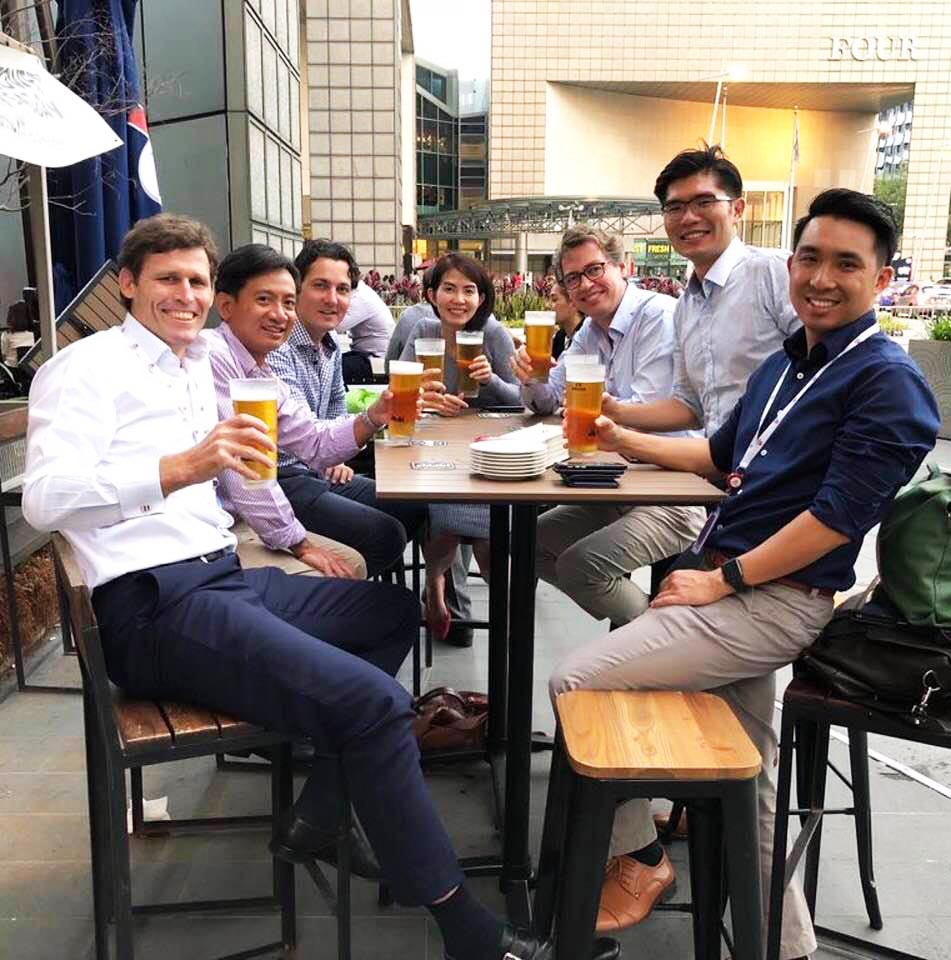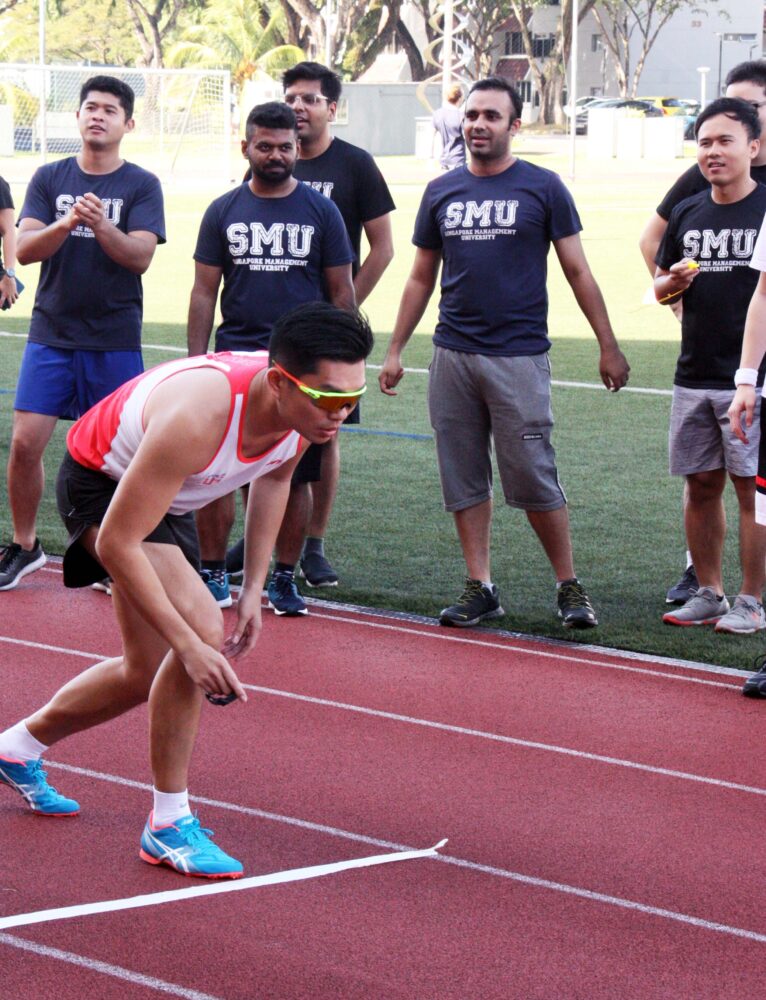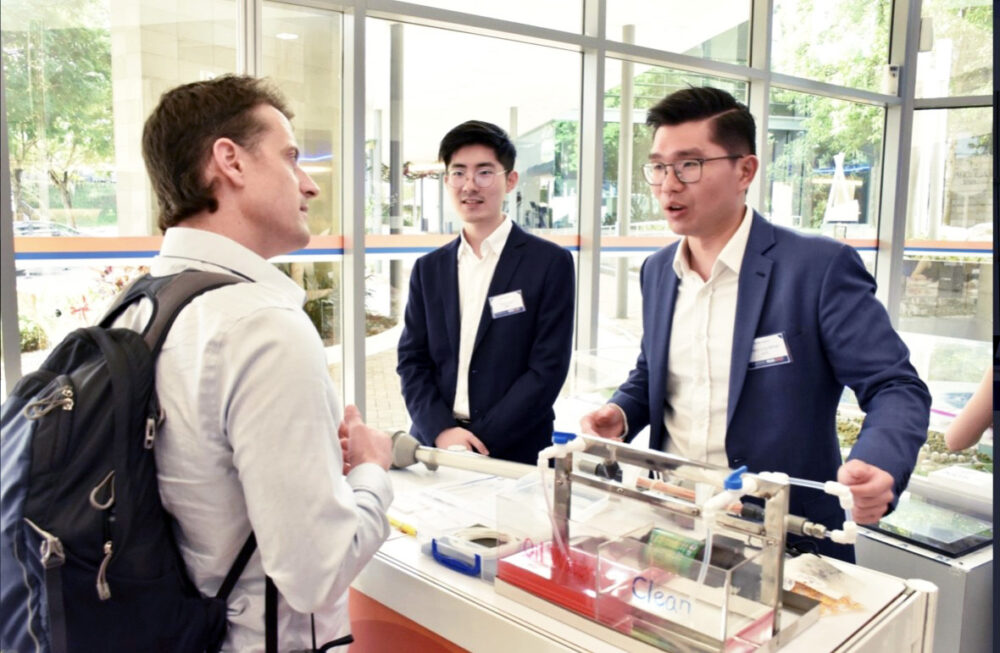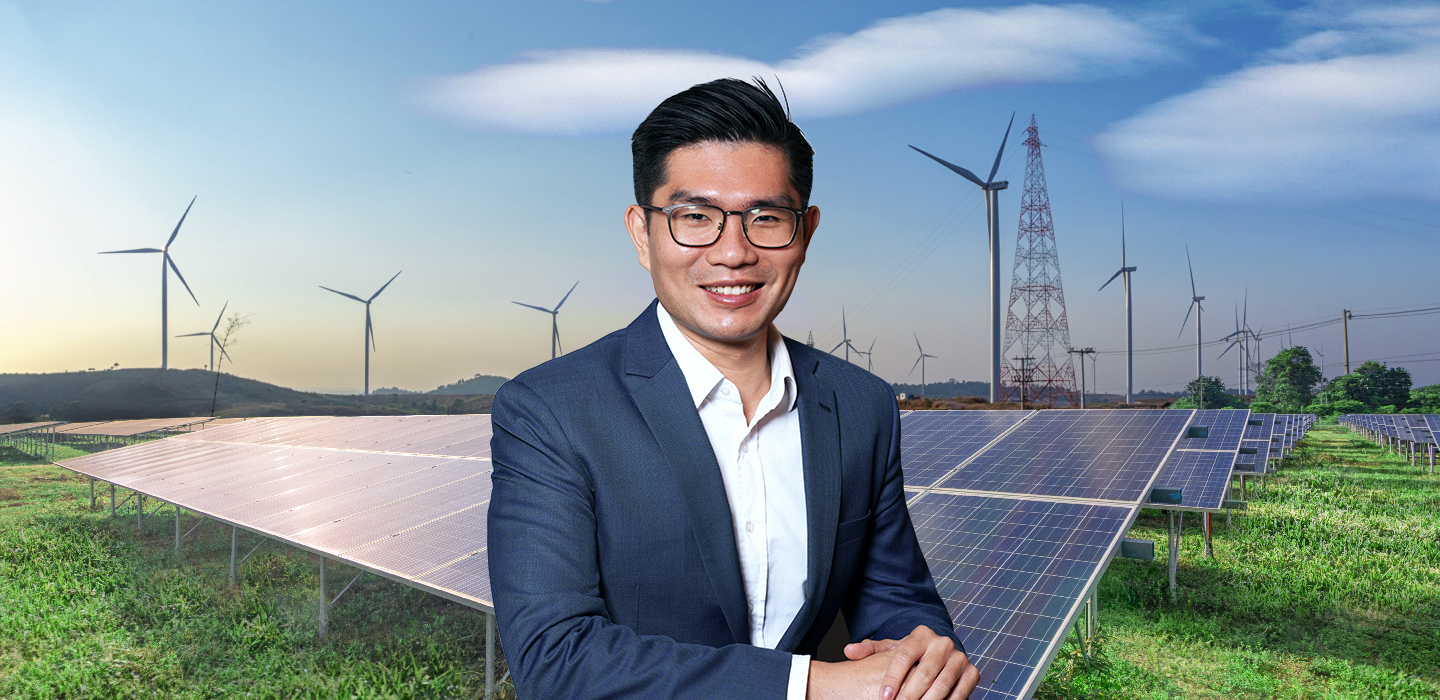In this Global Impact series, we look at how NUS Business School alumni are shaping the future, and making a positive difference around the world. Kelvin Ling (MBA 2021) reveals his dreams in creating a greener world with clean energy.
As Regional Commercial Manager at Oiltanking, Kelvin Ling leases storage facilities to the oil, gas and chemical companies for trading and processing purposes. This is in Singapore, the largest commodity trading hub in Asia and among the top three in the world.
Concurrently, he is also the Business Lead for Innovation and Sustainability, looking into opportunities for new energy businesses and to make the company’s operations greener. For example, he is actively looking at collaborations with like-minded partners to decarbonise Singapore’s maritime and aviation industry. Within the company, he also led the adoption of solar panels on roof-top space and in future, potentially on storage tanks to power internal operations.
“The rooftop solar panels are able to power up to 2.5 per cent of our current energy usage. It’s not a significant figure for now, I have to say, but it’s a start for us to look at more innovative ways to increase the production of renewable energy with our existing assets,” said Kelvin in a Zoom interview.
He believes that sustainability can go hand-in-hand with long-term value creation. When he did his part-time MBA with NUS Business School, he took on entrepreneurship and sustainability modules. He observed that the energy industry is starting to pivot to clean energy sources. Although there are many potential investment opportunities in the clean energy supply chain, there needs to be a solid business model coupled with a long-term view to support these investments.
“What I’m trying to do now in my new role is to piece together many business cases along the supply chain for the various types of clean energies, by looking at development throughout the world,” said Kelvin.

Kelvin (second from right) with his colleagues from Oiltanking. (Photo taken before pandemic)
Attracted to NUS MBA’s experiential learning
His business training had come from his MBA.
Kelvin had studied Chemical Process Technology at Singapore Polytechnic and Chemistry at NUS (under a scholarship from Sembcorp Industries Ltd). After graduation and a few years in the working world, he felt that it was time to gain new knowledge. He had looked at a few local universities’ MBA programmes, and was drawn to The NUS MBA’s experiential learning.
He said that it was a big transformation for him from the start. The programme had a bootcamp that pushed candidates to go out of their comfort zone. Through role-playing, they picked up skills useful for handling difficult situations and resolving conflicts. “The things you need to do for the modules, the case studies, the case competition projects…they’re all very, very thought-provoking,” added Kelvin.

Kelvin participating in the MBA Olympics. (Photo taken before the pandemic)
It was not easy juggling family, work and studies. When he first started his MBA, his two children were only one and four years old. He was grateful that his wife stopped work to take care of the children. At work, Kelvin was busy with his duties and training his staff to face the dynamic nature of the oil industry. He was also grateful to his management for being supportive and flexible when he had to take time off for his studies and to his classmates and lecturers for all the collaborations and challenging discussions. This drive to multi-task and to make full use of his time came from his childhood where he had to start earning his keep since the tender age of 13.
He only slept for three to four hours every night, but it was a very fulfilling journey. In 2019, Kelvin joined the NUS Graduate Research Innovation Programme (GRIP), which guides postgraduate students and researchers to turn their research into deep tech start-ups. He met Yang Xuan, who was then an environmental engineering PhD student. Together, they co-founded Oleum Levo, a cleantech start-up that uses more efficient membranes to separate oil from bodies of water. Outside of his office hours, Kelvin works on his start-up and is looking to commercialise the membrane technology that would be useful in combating oil pollution.

Kelvin (far right) presenting membrane technology at an NUS GRIP event. (Photo taken before pandemic)
His future goal is to reduce the environmental footprint of fossil fuels. Kelvin said, “I have young kids, I don’t want them to grow up in a world where there’s irreversible pollution, floods, or extreme weather conditions. I want to do my part in the energy industry, to help accelerate this transition to a more sustainable future.”
In the process, he hopes to influence others and also inculcate the thinking that sustainability is required to drive long-term value for businesses. Beyond corporate social responsibility, community service and governance, sustainability also encompasses economic benefits. Kelvin said, “I want to inspire people to think of it that way because I was inspired by what I learnt in The NUS MBA.”






